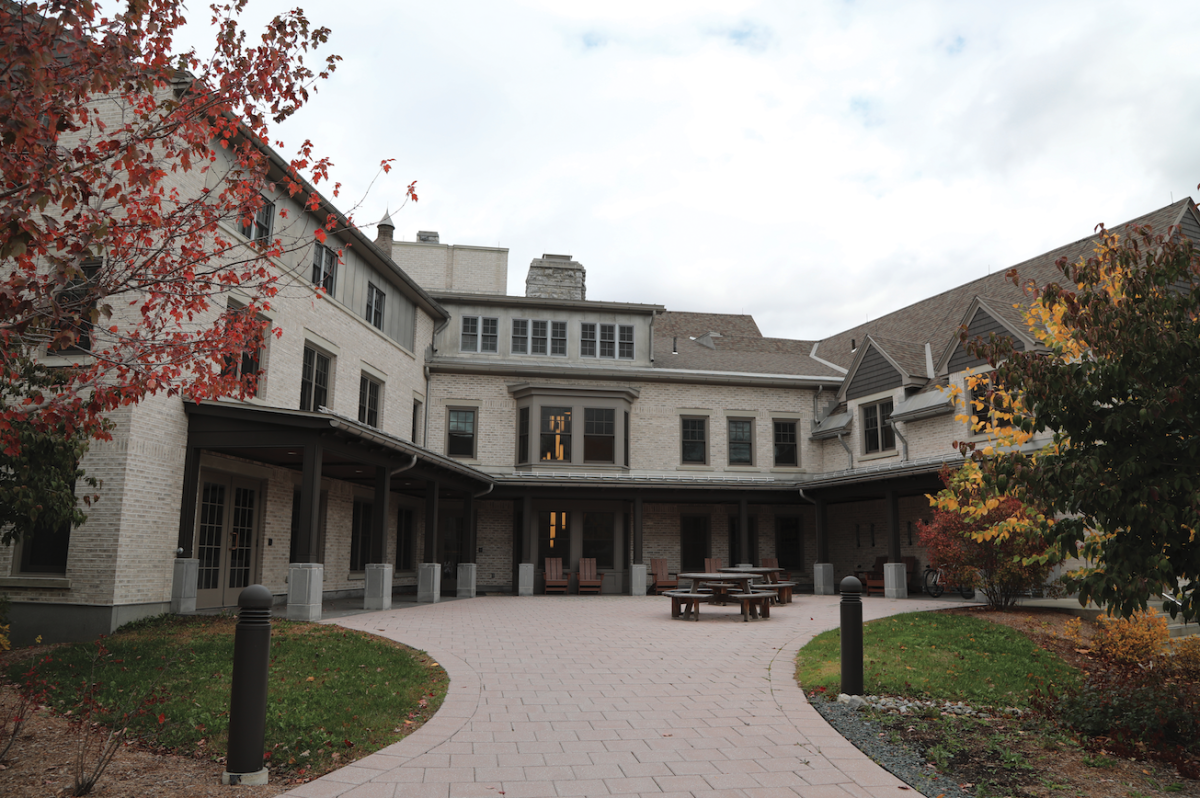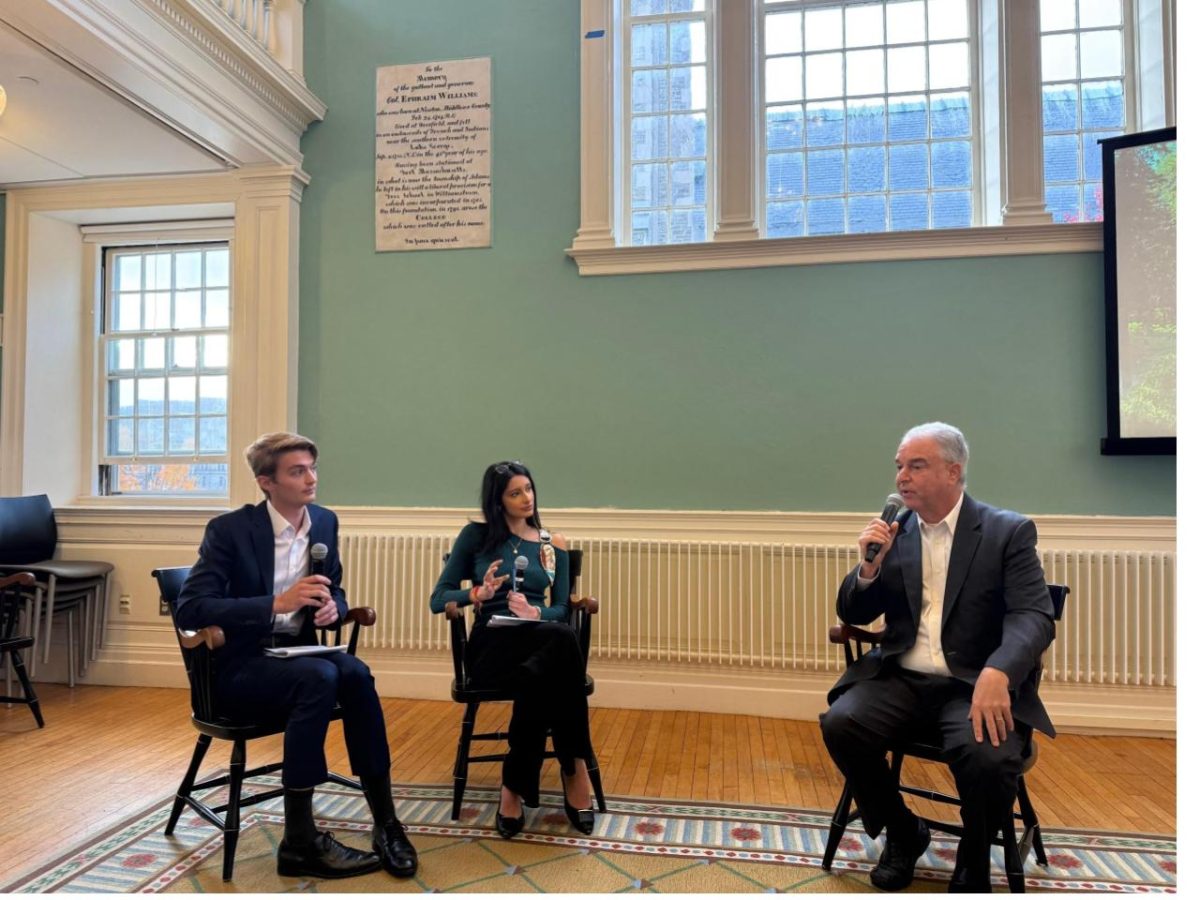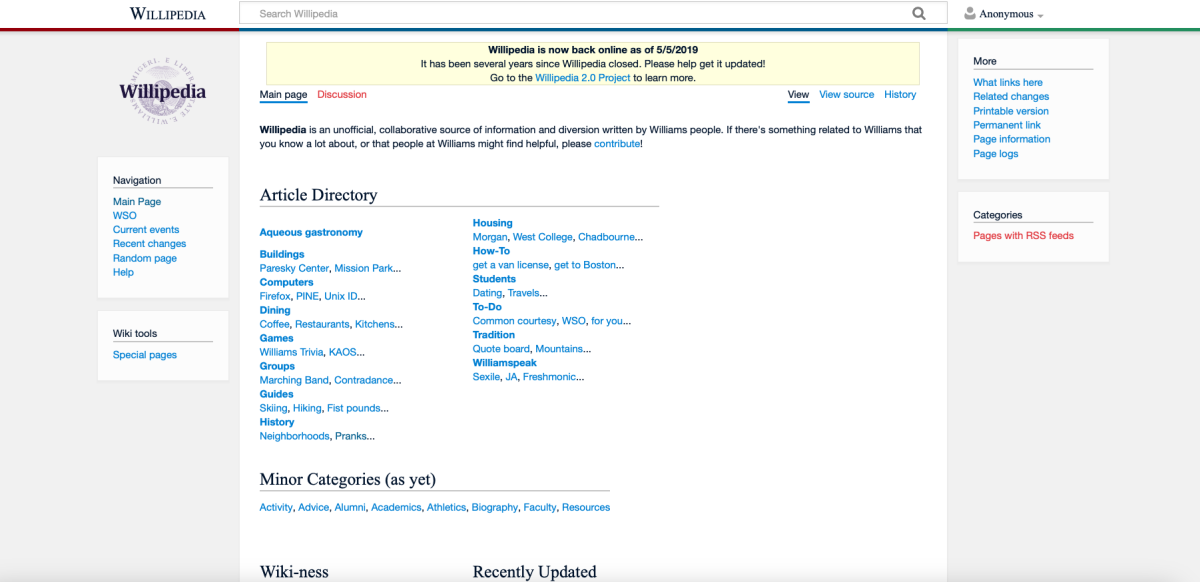In the wake of the College’s shift to remote learning, many aspects of academic life remain in question, including the fate of the colloquium requirement the computer science and mathematics and statistics departments.
Under normal circumstances, according to the webpage for the mathematics and statistics department, every senior math major is required to “prepare and deliver an acceptable colloquium talk or thesis presentation” between 30 and 40 minutes long, in addition to attending at least 21 colloquia during their junior and senior years. The requirement for statistics majors is the same, except that talks are expected to be 30 minutes long, and majors need only attend 20 colloquia, with up to six of those attendances allowed to be for math or computer science colloquia. Computer science colloquia differ slightly in that the talks are largely given by Williams faculty, faculty from other institutions and computer scientists from industry. Majors must attend at least 20 colloquia, but need not give a presentation themselves.
The disruption of spring semester has necessitated changes to these requirements, particularly for seniors who have yet to give a required talk or find themselves unable to attend the requisite number of presentations.
Richard De Veaux, professor of statistics and chair of the mathematics and statistics department, explained that math and statistics students will continue to give colloquia remotely for the remainder of the semester. “We are trying to keep the schedule as intact as possible with the realization that some students will need accommodations,” he wrote in an email to the Record.
The department has created Glow courses for both mathematics and statistics colloquia, and majors have been notified and added to the appropriate Glow site. Students will be able to view colloquia either synchronously or recorded. “Students who can’t ‘attend’ will be asked some questions about the recorded colloquium to fulfill the requirement,” De Veaux said. “There may also be the possibility of watching other approved lectures and writing up a short summary.”
The attendance requirement for mathematics majors has been reduced to 18 and statistics majors to 19, since the department lost three and one sessions, respectively. This change is only expected to affect current seniors, with the requirement reverting to the original 21 and 20 once circumstances normalize.
“We have no plans to reduce it in the future any more than we expect to have 11-week semesters in the future,” De Veaux said. “We certainly hope that things will return to as close to normal as soon as possible.”
Jeannie Albrecht, professor and current chair of the computer science department, described the changes to the computer science colloquium requirement. “CS majors are still required to attend 20 total,” she said, “but we have reduced this requirement to 10 for seniors.” The department has cancelled remaining speakers for the spring, so no talks will be given online.
“We will work individually with any senior with fewer than 10 to find an alternate way for them to fulfill the requirement,” Albrecht said. None of the scheduled speakers were students, with the exception of thesis students, who will now present virtual defenses to the faculty.
“We don’t anticipate any future changes,” Albrecht said. “However, we will continue to make adjustments as necessary during these unpredictable times.” These updates have also been announced to majors and posted on the department webpage.
Jonathan Carrasco-Noriega ’20, a computer science major, has attended 16 colloquia to date and would have had difficulty fulfilling the requirement under normal circumstances. After the cancellation of one of his spring semester classes near the end of the add-drop period, he ended up registering for a class that met on Friday during the block of time when colloquia normally occur, preventing him from attending.
After speaking with the faculty, Carrasco-Noriega was given the alternative of reading assigned research papers and providing an in-depth summary of each. “It would have been fine,” he said. “I would have graduated, but it would have been more painful.”
But since the College has moved to remote learning, Carrasco-Noriega no longer has to reach the 20 colloquia mark. “We had to attend 20 colloquia, and I think [10] is pretty generous,” he said. “They probably could have [told us] to read research papers…. I don’t know if that would have been more adequate, like if people didn’t have internet that could be a huge burden and a lot of extra work.”
Junior computer science majors have been disproportionately affected, as the department encourages majors to attend five colloquia per semester during their junior and senior years to accumulate 20, but the requirement has not changed for them. Solly Kasab ’21 attended five colloquia this year. “I had wanted to attend at least 10 before the year was out,” Kasab said, “but obviously that plan is out the window. The current situation thus pushes the remainder (15 out of 20) to next year.”
Kasab praised the department’s policy change – reducing the requirement to 10 colloquia – for seniors, but expressed worry for his own class. “Looking ahead to next year, the prospect of attempting to get 15 credits, especially with the possibility of a class period overlapping with the time slot, is daunting,” he said. “My hope is that the department thus reduces the graduation requirement to 15 for junior majors, which would relieve the pressure on people. Otherwise, figuring out some sort of alternate way to fulfill a portion of the requirement this year or next might be nice (such as livestreaming faculty presentations or such).”
Alessandra Miranda ’20 is an English and statistics major and has attended about 20 colloquia, with 15 of them counting for credit. She presented her colloquium talk earlier this year in late February. “I think the Math/Stats department is doing the best they can, given the circumstances,” Miranda said. “For students who have not yet given their colloquia and will present over video conference, they will definitely have a very different experience than those who have already presented to a live audience.”
Jacob Shuman ’20 has yet to deliver his colloquium or his thesis defense. “I had always planned on delivering my presentation in person,” Shuman said, “and I imagine giving the presentation online will inevitably be a bit more awkward.” But he expressed his hope that the move to remote delivery and attendance will not detract from the success of the colloquia.
“The department has been very explicit about not wanting this requirement to be a burden for anyone,” Shuman said. “I am hopeful that the department will figure out how to make colloquium an accessible and enriching experience for all students even with virtual presentations and attendance.”








